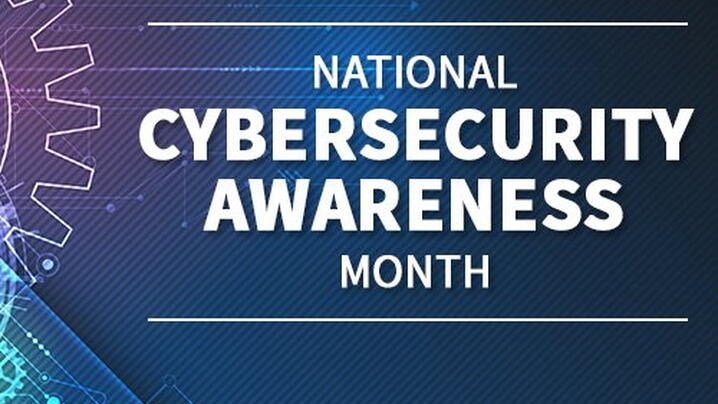
National Cyber Security Awareness Month (NCSAM) 2016 kicked off on October 1. Throughout the month, the U.S. Department of Homeland Security (DHS), along with the National Cyber Security Alliance, is calling on Americans to take basic steps to secure their online lives and raise awareness for cybersecurity.
Each week, DHS provides information and advice to help individuals and organizations stay cyber-secure. Week 3 focuses on the importance of recognizing cybercrime and knowing how to protect against it:
Starting at a young age, we are taught about crime and how to protect ourselves. For example, we learn to lock the doors at night, to say no to drugs, and to avoid talking to strangers. As we get older, we also learn to take safety measures to protect our money, our valuables, our families, and our physical safety.
However, when it comes to our online lives, many of us frequently put these same things at risk. With so many of our financial, business, academic, and social activities now taking place online, crimes that were once conducted in person can also now be facilitated through an online medium.
Cyber incidents can be the result of a seemingly harmless “phishing” email that appears to be from a trusted source, a weak password that a cybercriminal can easily penetrate, or a malicious link that allows cybercriminals complete and unauthorized access to one’s computer. By being able to identify signs of criminal intent online and taking precautions when using the Internet, individuals can help detect and combat cybercrime. Here are three ways to protect yourself from online crime:
- When in doubt, throw it out. Links in emails, tweets, posts, and online advertising are often the way cybercriminals compromise your computer. If it looks suspicious, even if you know the source, it’s best to delete it.
- Think before you act. Be wary of communications that implore you to act immediately, offer something that sounds too good to be true, or ask for personal information.
- Lock down your login. Always enable a strong authentication for sensitive online accounts. A stronger authentication requires that you use your password in conjunction with an additional piece of information (such as a PIN sent to your mobile device). Even if a cybercriminal is trying to access your account and has your password, they still cannot get account access without the second component. For more information on stronger authentication, visit www.LockDownYourLogin.com.
The theme for Week 4 will be “Our Continuously Connected Lives: What’s Your 'App'-titude?”
Cybersecurity Resources
The Department of Homeland Security provides these additional resources to help you protect yourself from online crime: Tip cards on “Phishing” and “Identity Theft and Internet Scams” in the Stop.Think.Connect™ Toolkit.
ICMA offers these:
New, Reduced Membership Dues
A new, reduced dues rate is available for CAOs/ACAOs, along with additional discounts for those in smaller communities, has been implemented. Learn more and be sure to join or renew today!
